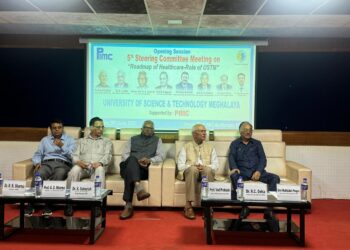Indian Institute of Technology (IIT )Guwahati researchers develop a new technique
which is an ultrasound-assisted fermentation method to produce a safe sugar substitute called “Xylitol” from bagasse, the residue left after crushing of sugarcane.
There has always been a rising interest for alternative sweeteners from health conscious consumers and also from diabetic patients since white sugar health hazards are now a matter of concern for all.
Termed ‘Xylitol’, this sugar substitute has potential anti diabetic effects and overcomes limitations like chemical methods for synthesis of sugar and time delays associated with conventional fermentation .
The team of researchers was led by Prof. V.S Moholkar, Department of chemical Engineering, IIT Guwahati and his team includes Dr. Belachew Zegale Tizazu and Dr. Kuldeep Roy who co-authored the research papers.This Research was published in two peer-reviewed journals Bioresource Technology and Ultrasonics Sonochemistry.
While explaining the importance of this research, Prof. V.S. Moholkar, Department of Chemical Engineering, IIT Guwahati, said, “The use of ultrasound during the fermentation process has not only reduced the time of fermentation to 15 hours (against almost 48 hours in conventional processes), but also increased the yield of the product by almost 20%. The researchers used only 1.5 hours of ultrasonication during the fermentation, which means that not much ultrasound power was consumed in the process. Thus, xylitol production from sugarcane bagasse using ultrasonic fermentation can be considered as a potential opportunity for forward integration of sugarcane industries in India.”
According to them, Xylitol a sugar alcohol which is derived from natural products has potential antidiabetic and anti-obesogenic effects is a mild prebiotic which also protects teeth against caries.









